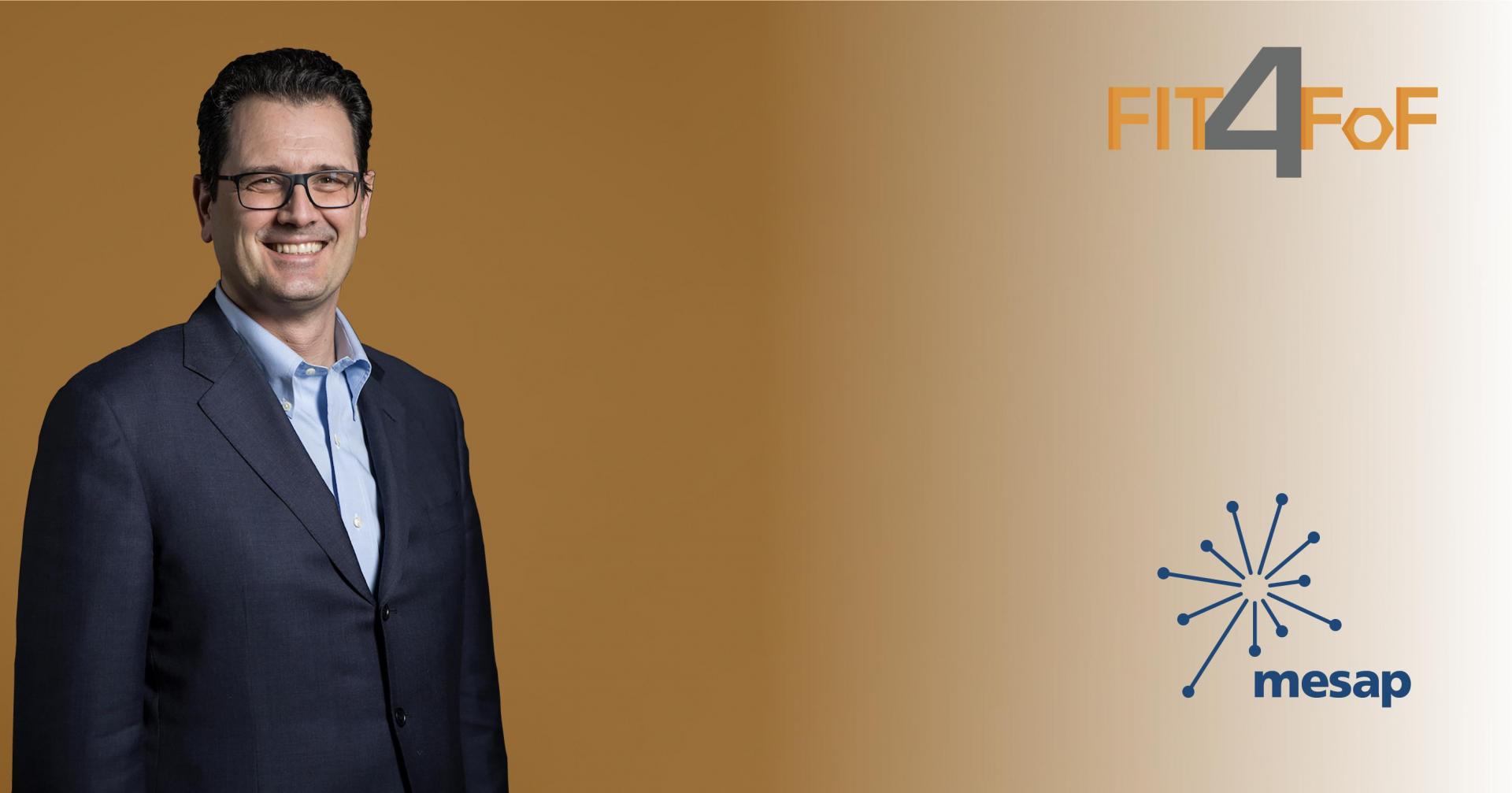"FIT4FoF, a project created to fill professional gaps and support companies in innovation 4.0"

Paolo Dondo is Technical Manager at MESAP, the Innovation Cluster of Piedmont Region and also member of the FIT4FoF. Here he replied to a little interview about the project, his organisation and the development of the pilot.
What is the reason to participate in the FIT4FoF project?
Mesap is a regional cluster of more than 220 SMEs acting as a receptor of needs daily, from project activities to news and requests for support on the evolution of the Industry 4.0 national and European plan. Our main goals are to support companies in technological innovation and be a technology transfer center by putting companies in contact with universities and research centers. The various project activities always led to the search for new professional figures: this is why we are part of FIT4FoF, a project created to fill professional gaps and support companies in innovation 4.0. Mesap has products and manufacturing technological innovation as its payoff; we deal in the field of Industry 4.0: this is why we were glad to represent the European pilot project dedicated to this area with a focus on supporting the impact of digital transformation. Specifically, we focused on gender equality as far as working population age and inclusiveness are concerned - Italy has a higher percentage of elderly workers and a low female employment rate, one of the lowest in Europe. In our small way, taking this inequality at heart, we have always given weight to gender equality: about 40% of the people working in the cluster are women. Another crucial element that convinced us to participate in the project is the training of blue-collar workers, the arising need to increase skills in new technologies (I4.0) to be introduced into the production lines.
What do you think is the most interesting aspect of the FIT4FoF?
The most interesting aspects we have addressed at the project level are the definition of new professional figures and the co-design of training activities with a synergy between top-down and bottom-up approaches.
How has the planning process for the educational pilots been?
We selected companies from our portfolio of regional innovation projects. After this selection, we carried out a preliminary questionnaire on the training needs in the field of Industry 4.0. We then performed a screening of the companies interested in participating in the project activities, running an analytical questionnaire on the same subject. After an accurate results analysis, we chose the company which participated in the co-design activities (ICoED Workshops). The company will proceed with the implementation of ICoED methodology through courses for its employees in September. We cooperated with the company trainer (train the trainer approach).
What has been your experience with the Codesign process?
The experience has been very innovative and useful. The pilot company wishes to use it shortly to present innovation and training activities to external auditors (ISO9001 certifications). The MIRO Tool (PI Planning or Reverse Brainstorming or brainwriting board) use enables a structured approach. The different cards per type of input are very useful for employees, especially for offline courses. They are very keen on using it for determining future training activities. Furthermore, we acted as a facilitator during the workshops, transforming complex terms into simple language; moreover, being a local reality, we mediated with the Italian-English-Italian translation between the Pilot company and the training partner (UCN).
As a cluster, how do you help companies to boost the improvement of their employees?
We collaborate with education and training bodies, having defined several MoUs and collaboration agreements with them. The goal is to help SMEs getting in touch with education and training bodies to meet their needs. On the educational side, we collaborate with ITS Mechatronics and Aerospace (tertiary education) and COREP – Research and Educational Consortium (post-degree masters). On the training side, we have agreements with CIM4.0 – National Competence Center I4.0 (technology training body) and Skillab – Soft Skills training center. In addition, for first-person actions, we set up and sent several questionnaires to Industries (mainly SMEs) focused on educational and training needs with some field visits upon request.
Where do you think companies in Italy are in terms of Industry 4.0?
Italy has the second largest manufacturing industry in Europe but is lagging in terms of digital infrastructure. According to a study carried out by the National Digital Innovation Hubs and based on the DRL (Digital Readiness Level), Italy is positioned at an intermediate level (score 2.5 out of 5). At the European level, we are defined as “moderate innovators” while at the national level, the Piedmont Region is among the top 5 Italian regions. In 2017 the Italian government launched the National Transition and Impresa 4.0 Plan, still ongoing by further additions. They are incentive packages issued by the government to facilitate investment in digital technologies by companies. The national government is working to support the transition to the 4.0 paradigm by companies, enabling them to operate in an increasingly digitalized and competitive socio-economic context. At the heart of the measures taken by the government, there are measures geared towards technological progress and development. Mesap supports SMEs that have started to introduce new technologies using the mentioned incentives packages (tax credit, super and hyper depreciation, etc.).